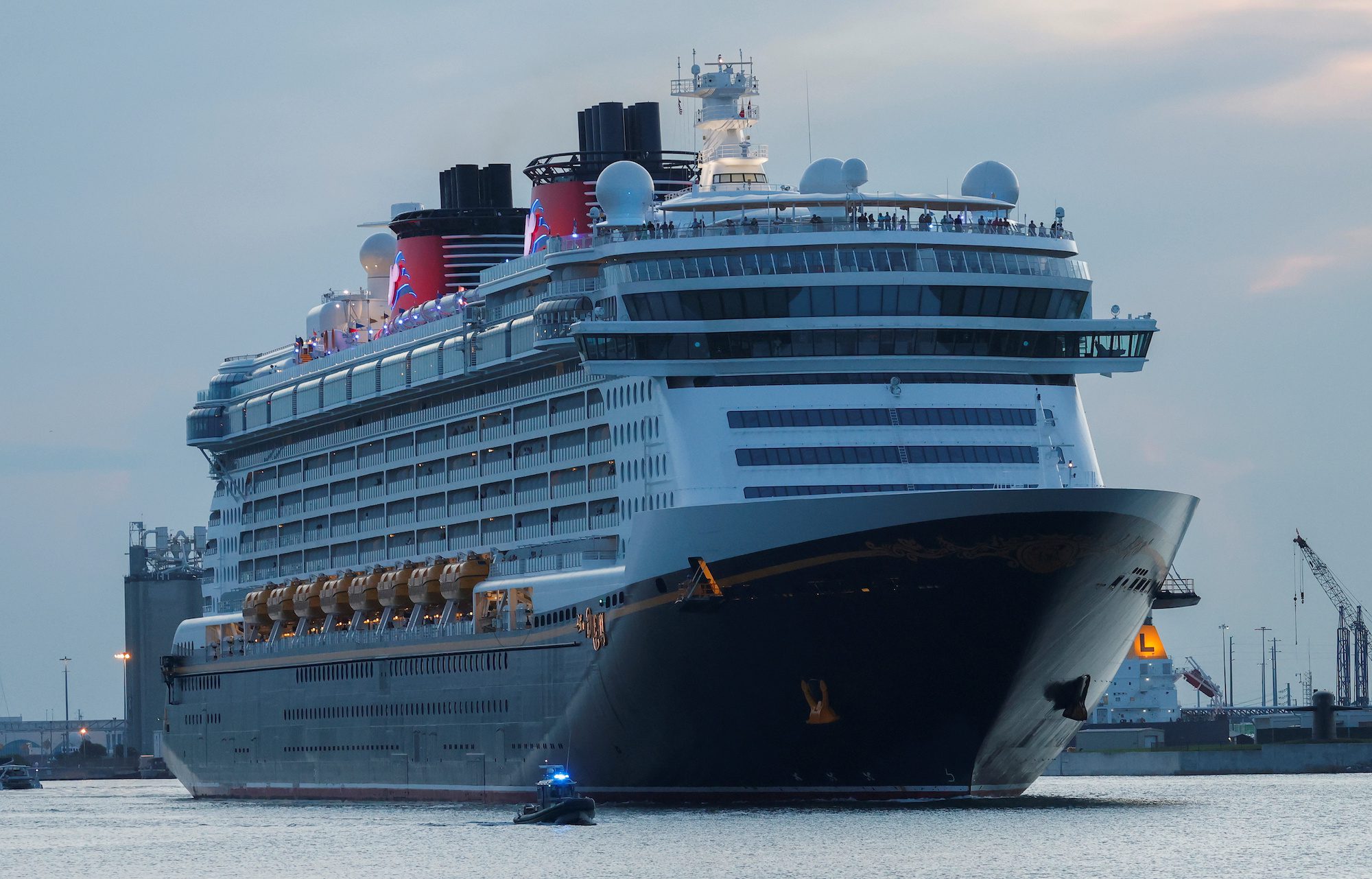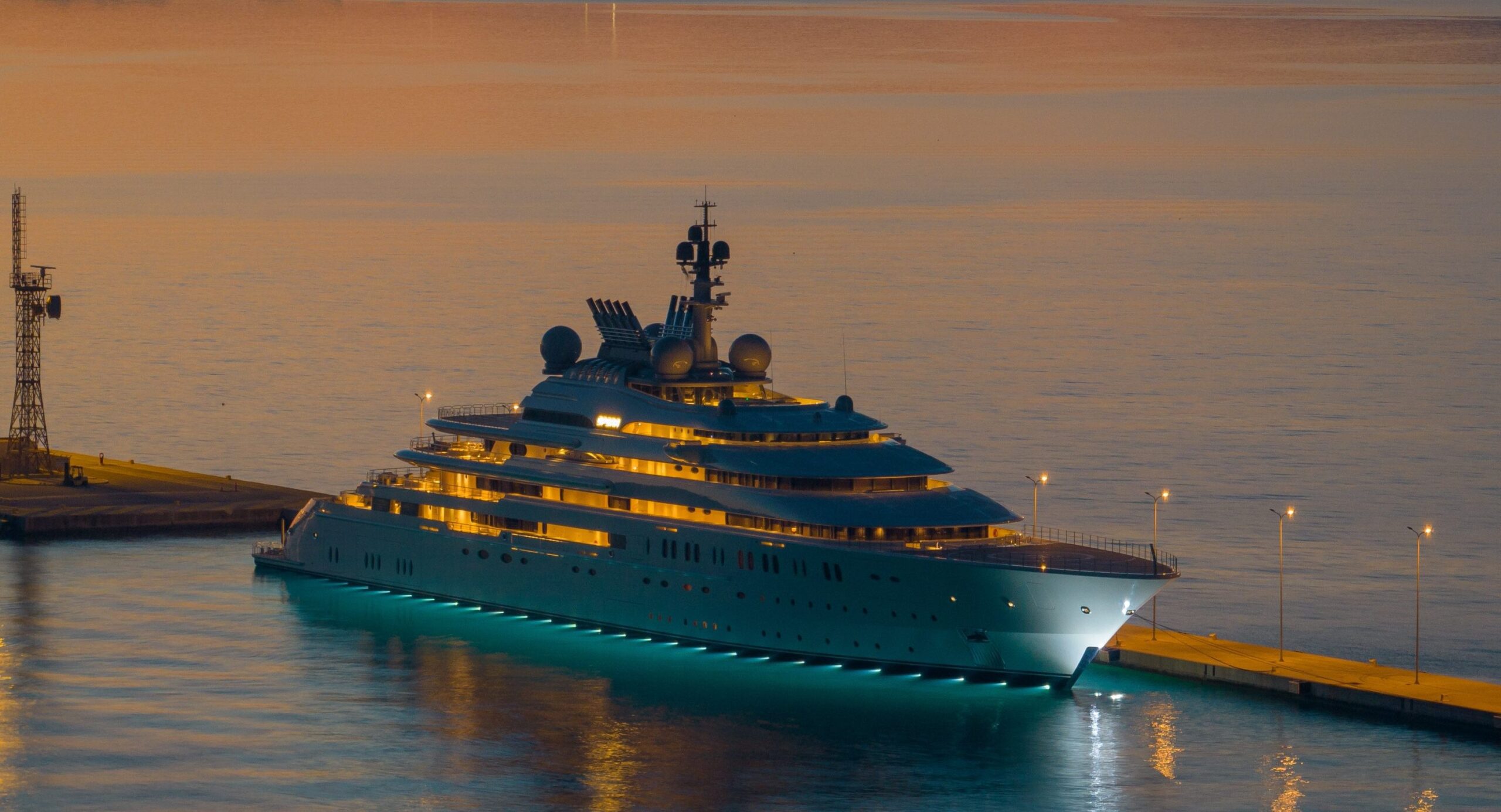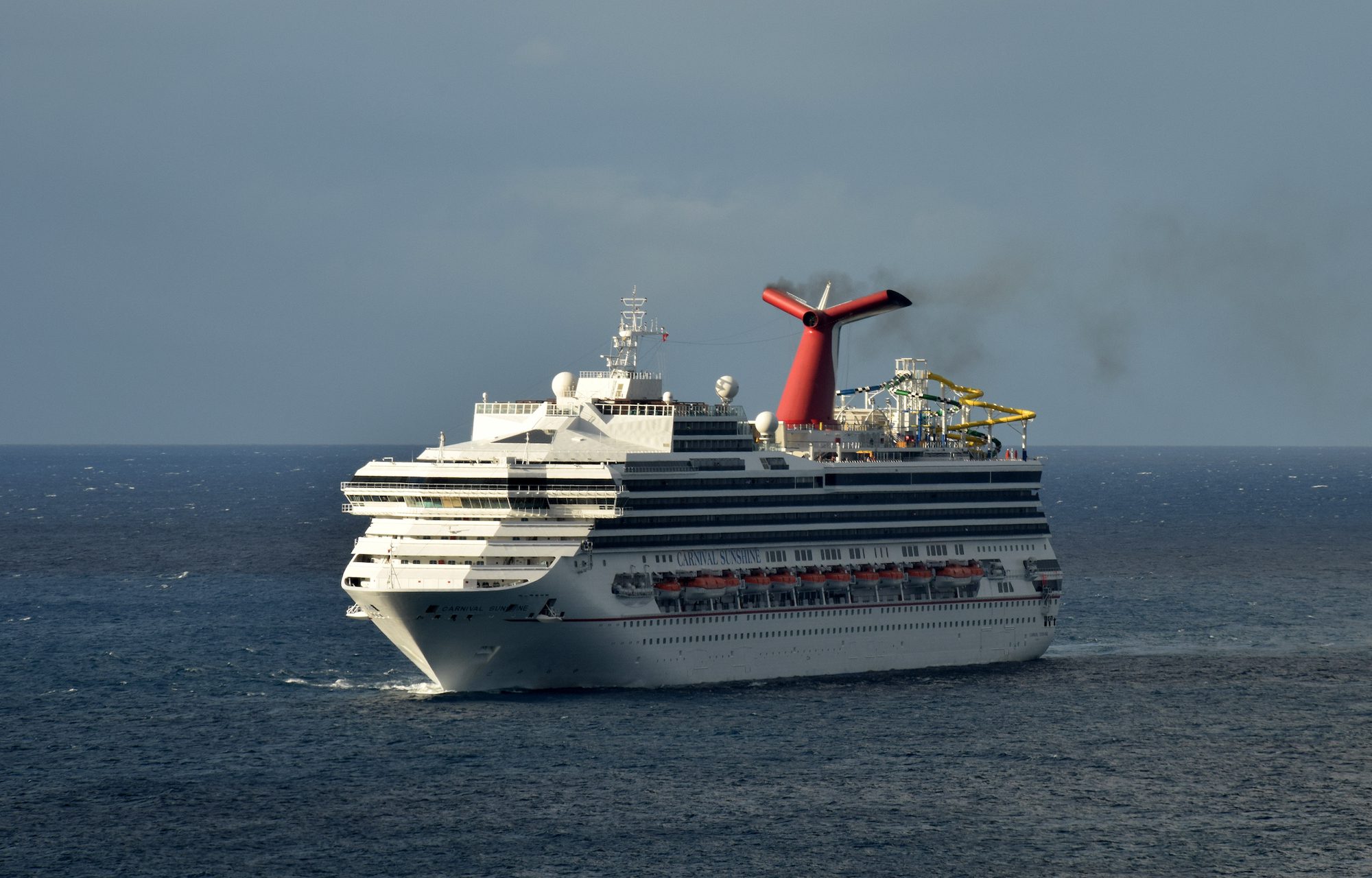By Fran Golden (Bloomberg) —
On the fancy, new, 245-passenger American Countess riverboat, passengers sip complimentary mint juleps on a top deck, masks wrapped around their wrists like bulging bracelets, while the ship’s big, red paddlewheel churns through the Mississippi. It’s a post-pandemic sight to behold—even if these are not quite post-pandemic times. Still, its mere occurrence puts John Waggoner, founder and chief executive officer of the four-ship American Queen Steamboat Co., in the catbird seat as far as the cruise industry is concerned.
On long, white-and-red-painted boats with open decks, decorated with fanciful Victorian-style gingerbread trim, Waggoner sells hardcore Americana that’s steeped in U.S. history. It’s a hot product under the current circumstances, he says.
“There’s a big push to buy in America,” Waggoner tells Bloomberg. “So: U.S.-flagged vessels, built in America, manned by U.S. employees. I think there’s a big move towards that.”
There’s also the fact that he’s allowed to operate while much-larger competitors cannot, including Royal Caribbean International, Carnival Cruise Line, even mega river cruise line Viking River Cruises. Since the cruise industry shut down in March 2020, the U.S. Centers for Disease Control and Prevention has blessed only cruise ships carrying fewer than 250 passengers and crew. Waggoner’s four ships are among few of these in the U.S., making them a rare option for millions of American cruise lovers who are otherwise stuck in a holding pattern.
Larger companies are currently hatching plans to circumvent the CDC’s orders by restarting Caribbean-only sailings this summer. But American Queen is already back in business with two boats—the American Countess and the smaller, 166-passenger American Duchess—both operating since mid-March with reduced capacity to allow for social distancing and comply with the 250-person limit. Its less-luxurious competitor American Cruise Lines also returned to the Mississippi on March 21, and plans to have three boats on the river in April. These include a new, modern, 190-passenger riverboat and two small paddlewheelers. All will sail at limited capacity, with a vaccine required for departures through April 30, 2021. (After that, the company plans to only require negative PCR tests.)
If the CDC allows it, Waggoner hopes to add the opulent American Queen, the world’s largest paddleboat—which can carry more than 420 passengers—by the end of May. All three vessels sail the Mississippi and some tributaries: the Ohio, Cumberland, and Tennessee rivers. A fourth riverboat may soon traverse the Columbia and Snake rivers in Washington and Oregon, following the route of 19th-century explorers Lewis and Clark, pending negotiations with those state governments.
There’s reason to believe the authorities will bite. In its first few voyages carrying paying customers up and down the Mississippi, American Queen had no confirmed cases of Covid-19. That bucks a pattern of positive cases among cruise lines—including small-ship ocean lines SeaDream Yacht Club and Hurtigruten—that has loomed over the cruise industry like a dark cloud.
Calling the Shots
Business has been booming at American Queen Steamboat Co., with numbers running ahead of 2019 levels, says Waggoner. He adds that the company saw significant upticks in January, on the heels of the U.S. vaccine rollout, and again in February, when it announced a requirement that guests, crew, and even bus drivers be vaccinated for sailings, starting in July. “We’re excited with our sales momentum,” Waggoner says.
For trips before July, guests are required to take a PCR test during a one-night pre-cruise hotel stay that’s included in the price of eight-night sailings that start at $2,000 per person. Waggoner says he expects most of the passengers—a demographic that tends to be age 65 and up—will have already been vaccinated.
Shots were a big factor in the company’s decision to get back on the river.
“We’re like a family business,” Waggoner says. “I had to ask myself: When am I comfortable? When would my wife be comfortable? Our family is rushing to get the vaccine and start cruising again.”
Ports such as Baton Rouge, La., and Natchez, Miss., have been anxious for the riverboats to get back in business. About 30,000 people sailed the Mississippi and its tributaries with American Queen Steamboat Co. in 2019 for an estimated impact of around $40 million in key river markets. To show Louisiana’s support, Lieutenant Governor Billy Nungesser was among the dignitaries attending the christening of the American Countess on March 21.
History Lessons
While ships of the American Queen Steamboat Co. venture to St. Paul, Minn., and pull up in Pittsburgh, St. Louis, and Cincinnati, the company’s bread and butter is the Mississippi flowing between New Orleans and Memphis.
From New Orleans, the views are all industrial until Baton Rouge, when the landscape suddenly becomes a Mark Twain-style land full of brush and marsh wilderness that hasn’t changed in centuries. From there, daily stops include visits to Civil War sites such as the Vicksburg National Military Park, plantation tours at antebellum mansions, and Delta blues concerts at actor Morgan Freeman’s juke joint in Clarksdale, Miss.
In Helena, Ark.—whose population barely tops 12,000—there’s a popular visit to a Baptist church. “People say, ‘Why drop us off in this blighted city?’ but when you hear the gospel choir, it’s awesome,” Waggoner says. Another unusual tour visits the infamous maximum-security Louisiana State Penitentiary, also known as Angola, where cruisers meet inmates who train service dogs for disabled veterans.
On board, you can start your day with biscuits and gravy in the Front Porch Café; at night, a house big band called the Steamboat Syncopators plays in the Grand Saloon, which is meant to resemble Ford’s Theater. Before or after a cruise, many guests take a company tour to Elvis Presley’s Graceland in Memphis.
It’s a look at the heartland that appeals to even the well-traveled. “Now, they want to stay a little bit closer to home, learn more about their own country,” Waggoner says.
As if to emphasize that point, country music legend Lee Greenwood will come onboard in six cruises this year to sing his greatest hits, which include God Bless the U.S.A. On the ships themselves, not much attention is devoted to the role that Deep South destinations have played in social justice issues, both contemporary and historic. But in the places they visit, says Waggoner, “we work with the ports to curate experiences that tell the full history of the destinations.”
Road to Recovery
During the pandemic, American Queen Steamboat Co. laid off some 700 employees, an experience Waggoner says was “painful.” So far, about a third have been hired back, a number that will increase as more ships resume cruising.
Waggoner maintains that his particular business offers advantages. If needed, he says, “We can get you to a doctor or hospital that takes your health insurance, and that’s important to a lot of our guests”—unlike on ocean ships that travel to foreign ports. Still, that’s a fallback option he hopes not to have to exercise. The company’s stringent health protocols include touchless infrared temperature checks, mask wearing, and social distancing throughout the ship.
American Queen Steamboat Co.’s cruises are already 60% sold out through December, and Waggoner is optimistic about getting to full river capacity by Aug. 1. That would turn 2021 into a decent year for his company, a rarity in the cruise industry.
“A lot of people have been waiting for us to turn on the ‘We’re Open’ sign,” he says. “Right now we’re about where we should be.”
© 2021 Bloomberg L.P.

 Join The Club
Join The Club











